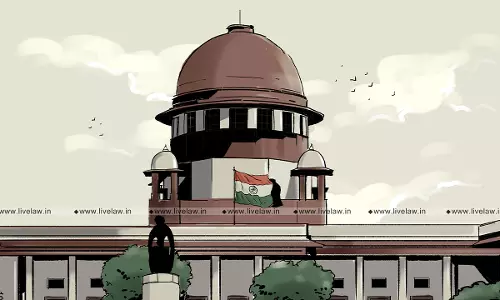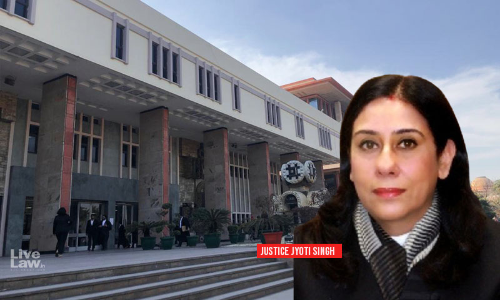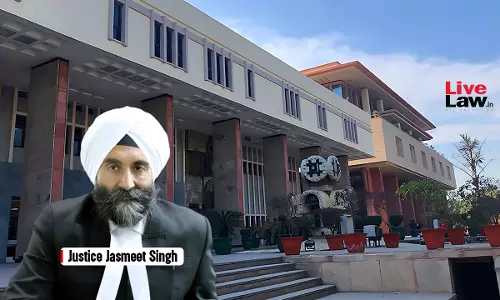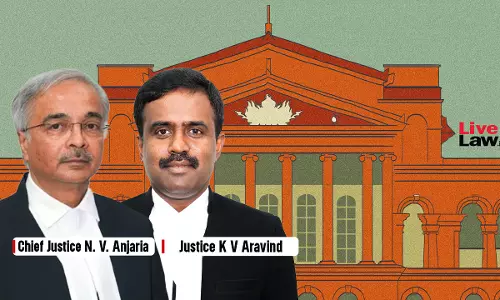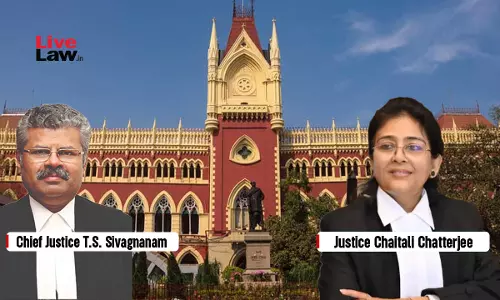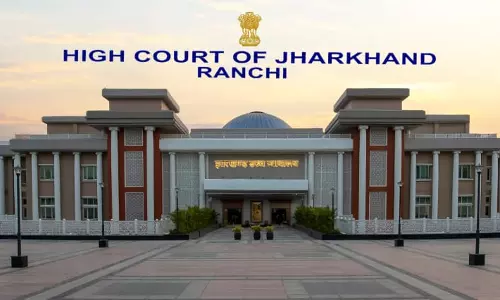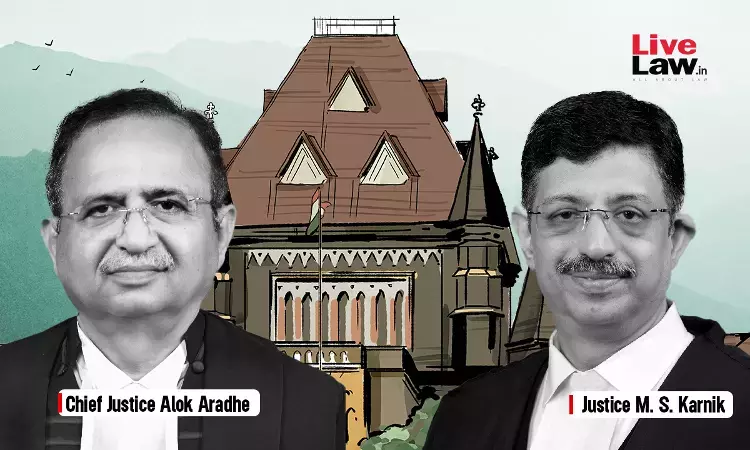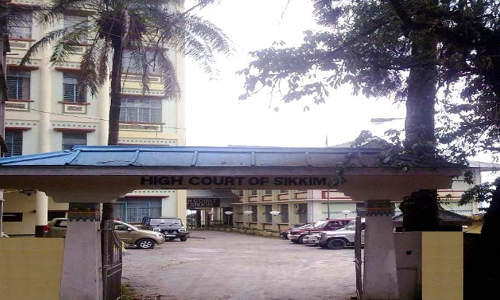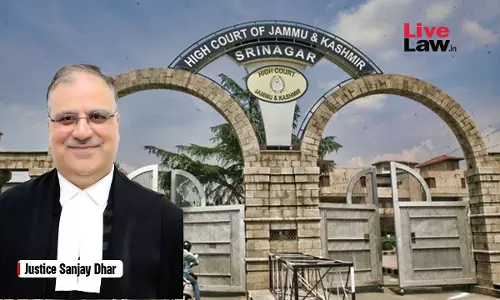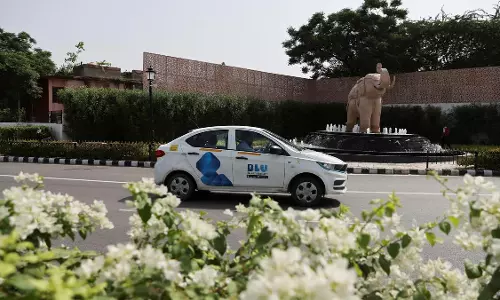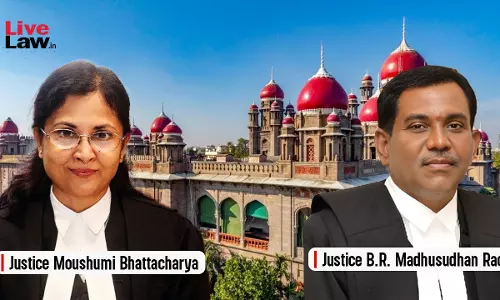Arbitration
Private Arbitration Clauses Cannot Override Statutory Mandates Under MSMED Act : Supreme Court
Reaffirming that the MSMED Act prevails over the Arbitration Act, as held in Gujarat State Civil Supplies v. Mahakali Foods, the Supreme Court set aside the Karnataka High Court's interference with MSMED proceedings in Delhi, despite the contract naming Bengaluru as the arbitration seat. The Court clarified that private contractual clauses cannot override the statutory mandate of the MSMED...
When Deciding Application For Appointment Of Arbitrator, Court Cannot Examine Whether Claim Is Barred By Res Judicata: Delhi High Court
The Delhi High Court Bench of Justice Jyoti Singh has observed that it is not open to the referral court in a petition filed under Section 11, Arbitration and Conciliation Act, 1996 (“ACA”) to examine the issue whether the claim is barred by res judicata. Such an examination falls within the domain of the Arbitral Tribunal. Facts The present petition had been...
No Objections U/S 47 Of CPC Can Be Moved By Judgment Debtor Against Execution Of Award U/S 36 Of A&C Act: Delhi High Court
The Delhi High Court Bench of Justice Jasmeet Singh has observed that a judgment debtor is not entitled to move objections under Section 47, CPC in an application for execution of award under Section 36, Arbitration and Conciliation Act, 1996 (“ACA”) as it would amount to effectively opening a second round for challenging the Award which would undermine the provision of section...
Once Parties Intend To Resolve Their Dispute By Arbitration, It Is Needless For Court To Decide Whether Partnership Was At Will: Karnataka HC
The Karnataka High Court bench of Chief Justice N. V. Anjaria and Justice K. V. Aravind has held that when both parties have agreed to resolve their disputes regarding the nature of the partnership through arbitration, it is unnecessary for the Court to determine whether the partnership is one "at will." Such issues are more appropriately left for adjudication by...
Writ Against Third Party Is Maintainable Despite Arbitration Clause When There Are No Disputes Between Contracting Parties: Calcutta HC
The Calcutta High Court bench of Chief Justice T.S. Sivagnanam and Justice Chaitali Chatterjee (Das) has held that when there are no disputes or differences between the parties to an agreement containing an arbitration clause, a writ petition may be entertained against a third party for arbitrary deduction of demurrage amounts. The existence of an arbitration clause between the...
Court Cannot Set Aside Entire Arbitral Award Due To Fraud In One Claim When Other Claims Rest On Different Grounds: Jharkhand High Court
The Jharkhand High Court bench of Chief Justice M. S. Ramachandra Rao and Justice Rajesh Shankar has held that when two claims decided in an arbitral award are mutually unrelated, the court, under Section 34 of the Arbitration and Conciliation Act, 1996 (Arbitration Act), cannot set aside the entire arbitral award solely because a fraud was committed concerning one of the claims, while...
Acquiescence To Termination Notice Of Agreement Bars Interim Relief U/S 9 Of Arbitration Act: Bombay High Court
The Bombay High Court bench of Chief Justice Alok Aradhe and Justice M.S. Karnik has held that when a party is aware of a termination notice issued by the other party and conducts itself on the assumption that the termination has taken effect, it cannot later seek interim relief under Section 9 of the Arbitration and Conciliation Act, 1996 (Arbitration Act) on the ground that the other...
Court Can Appoint New Arbitrator U/S 11(6) Of Arbitration Act If Designated Arbitral Institution No Longer Exists: Telangana HC
The Telangana High Court bench of Justice K Lakshman has held that even if the designated arbitral institution named in the arbitration agreement no longer exists, the Court can still appoint a new arbitrator under Section 11(6) of the Arbitration and Conciliation Act, 1996 (Arbitration Act) provided the intention to arbitrate is clearly evident from the arbitration...
S.29A Of Arbitration Act As Amended By 2019 Amendment Governs All Pending Arbitrations After Coming Into Force: Sikkim High Court
The Sikkim High Court bench of Justices Bhaskar Raj Pradhan and Biswanath Somadderhas held that section 29A, as amended by the 2019 Amendment, shall apply to all arbitration proceedings that were pending at the time the amendment came into force. Brief Facts: The present appeal has been filed under section 37 of the Arbitration and Conciliation Act, 1996 (Arbitration Act) against...
Court While Referring Parties To Arbitration Cannot Direct That Arbitral Award Should Be Filed Before It: Jammu & Kashmir High Court
The Jammu & Kashmir and Ladakh High Court bench of Justice Sanjay Dhar has held that the court, while referring parties to arbitration under Section 8 of the Arbitration and Conciliation Act, 1996 (Arbitration Act), cannot direct that the award, passed after the conclusion of the arbitration proceedings, be filed before it. Brief Facts: The defendant had approached the plaintiff...
SMAS Auto-Leasing Entitled To Protection & Preservation Of EVs Leased To 'Blu Smart', 'Gensol' Pending Arbitration: Delhi High Court
The Delhi High Court bench of Justice Jyoti Singh has granted interim relief under Section 9 of the Arbitration and Conciliation Act, 1996 to the the petitioner who is the owner of electric vehicles (EVs) leased under Master Lease Agreements upon apprehensions of financial distress, default in lease payments by the respondents and a risk of dissipation or deterioration of assets...
S.47 Of CPC Cannot Be Used As An Alternative To S.37 Of A&C Act For Unsettling Arbitration Award: Telangana HC
The Telangana High Court has clarified that section 47 of the CPC, which permits objections to be raised in an execution petition before the Trial Court; cannot be used as an alternative to challenge an arbitration award, which is being executed before a Trial Court.The Division Bench of Justice Moushumi Bhattacharya and Justice B.R. Madhusudhan Rao, while passing the order made it clear that...



